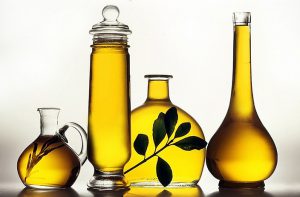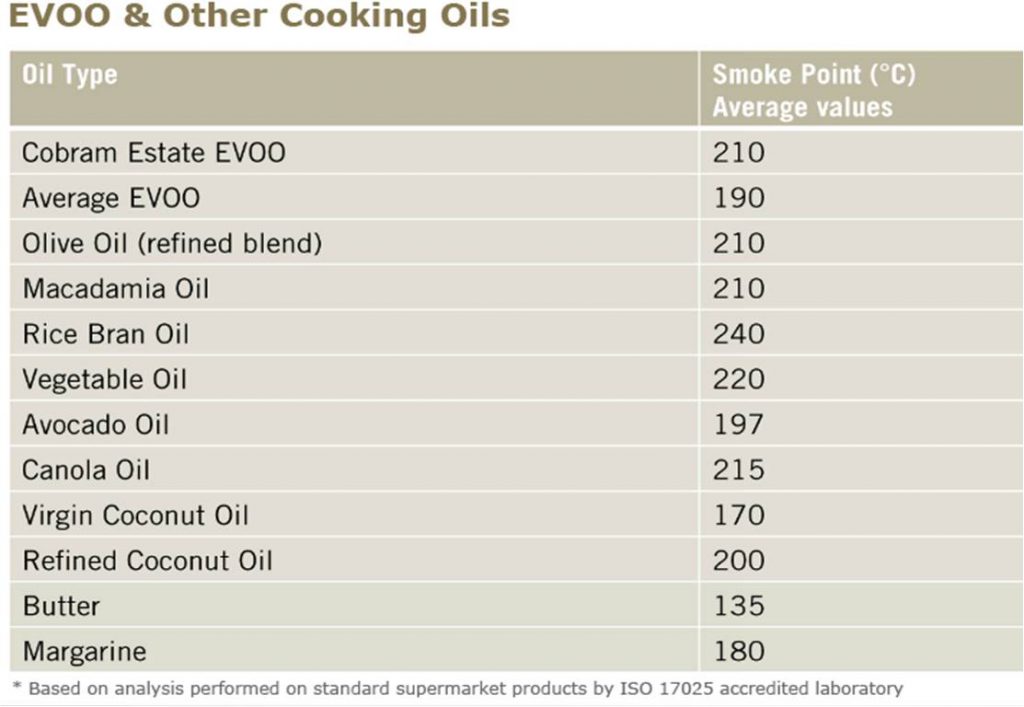There is plenty of conflicting information out there when it comes to dietary fats. What’s ‘healthy’ and ‘unhealthy’; what fats are best to cook with and more. Here’s my professional & clinical view about the best fat of the bunch.
I’m talking Extra Virgin Olive Oil (EVOO); why it’s a good oil to cook with and why its safe and beneficial to eat daily, plus sharing my TOP 5 Oils to have in the kitchen and which one’s to avoid and/or limit.
Let’s start by noting the obvious, EVOO is loved and favoured by a majority of health professionals, chefs, foodies and food scientists. This is simply because it has no faults. Time and time again, study after study shows that EVOO is a mono – unsaturated fatty acid, a plant based fat with a singular double bond, that enhances heart health, provides protective nutrients and protects against chronic disease. It contains no (zero, nil) Trans Fatty Acids that are harmful to health, a good ratio of essential fats Omega 3 & 6 and are naturally high in antioxidants with anti-inflammatory properties.
Honorable mention also for EVOO taste – win, win, win. 
Yet, what I’m hearing from new clients is that they’ve been told repeatedly to use vegetable oils such as canola, sunflower and rice bran because they are unsaturated, they’re less expensive and have a higher smoke point therefore are better to cook with. What the WHAT???.
Despite what the name suggests, a vegetable oil is not made from vegetables. It’s made from seeds such as corn, canola, sunflower and soybeans.
Seed oils are poly -unsaturated fats, and so they’re labelled ‘healthy’ BUT they’re particularly high in Omega 6 fats, some containing as much as 78%. Although Omega 6 fats aren’t a health culprit on their own, when they’re not consumed with Omega 3 fats in adequate ratio, it leads to a number of unwanted health conditions such as chronic inflammation.
Yes, vegetable seed oils are cheaper to make and therefore cheaper to buy, but that doesn’t make them quality or healthy, and the aim is for you here is to be healthy and eat healthy!
As for the vegetable seed oils being better to cook with due to high smoke point…, I’m debunking that using the table image below.
Overall, I recommend you to limit your intake of vegetable seed oils for better health.
When cooking with oils many people are concerned that EVOO “doesn’t have a high smoke point and will cause carcinogens by burning foods”, and that “it doesn’t always offer the best texture for baking”. The statement about texture will depend on what type of baking you’re doing.
My advice for alternatives with baking/deep frying that contain natural, non refined ingredients in place of EVOO are also my TOP 5 Oils to have in the kitchen –
1. Extra Virgin Olive Oil
2. Coconut Oil
3. Gf Ghee
4. Gf Butter
5. Traditional Animal fats (such as beef tallow & duck fat).
The smoke point of oils relates to the temperature at which sufficient violate compounds emerge from the oil. The smoke point of an oil generally increases as the free fatty acid content decreases, and the degree of refinement increases – leading to toxicological compounds emerging from the oil.
The average temperatures for different cooking styles are:
Pan frying (sauté) on stove top heat ~ approx. 120C
Deep Frying ~ approx. 160- 180C
Oven Baking ~ approx. 200C
If you think vegetable seed oils have a higher smoke point than EVOO, see the diagram to stand corrected. N.B This is a diagram to compare oil smoke points only; I do not suggest cooking with all of the oils mentioned.

As you can see, EVOO is up their with Coconut Oil, Macadamia Oil and even surpasses butter.
When you’re lost for what oil to choose as your pantry staple, to use for shallow frying, on salads and vegetables, as a dip or spread; remember the one that provides full health benefits with no flaws and is safe to cook with. For the love of Olive Oil 🙂
If you’d like to know more about the healthiest food choices at the supermarkets, join me for a Supermarket Tour or book me to give you a personal Pantry makeover.
Any questions or comments, I’d love to hear from you.
Yours in good health, Tracie x
For more information about how vegetable oils are made and the health risks involved when they’re consumed in excess, check out a great article written by Dr Stevens Lin here.

